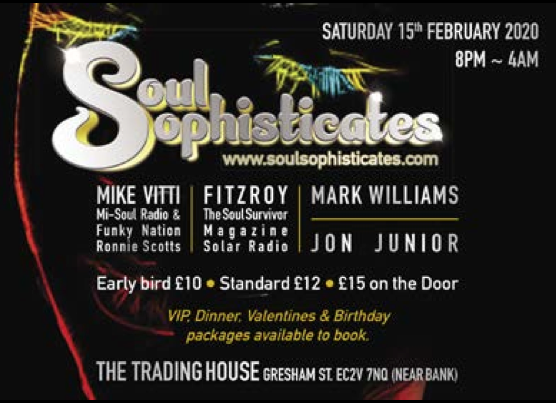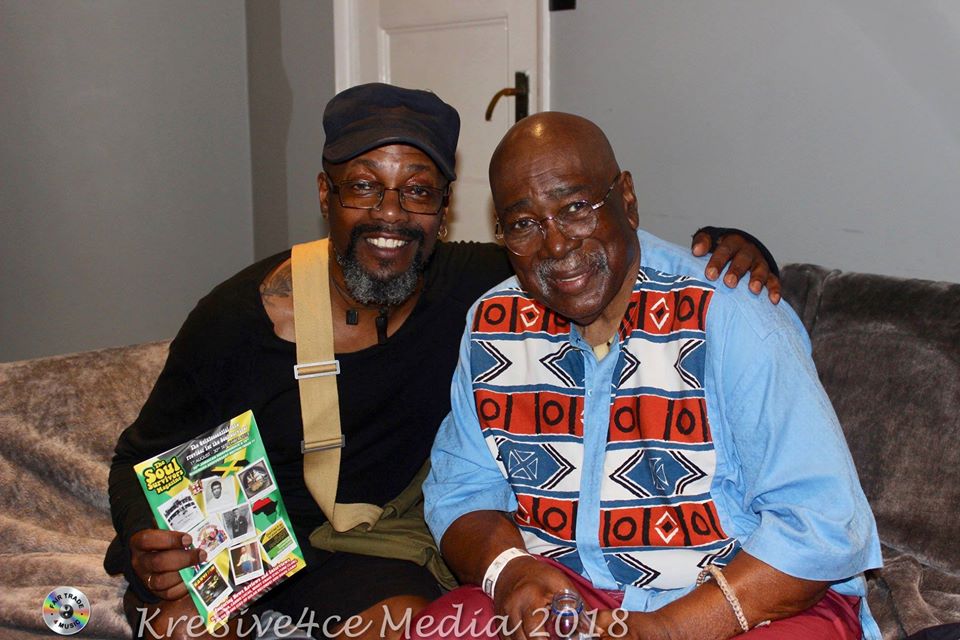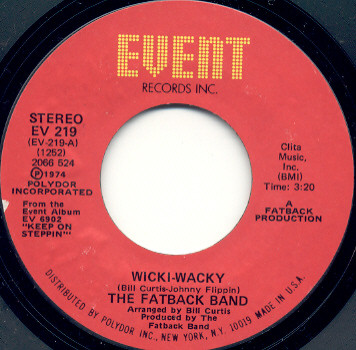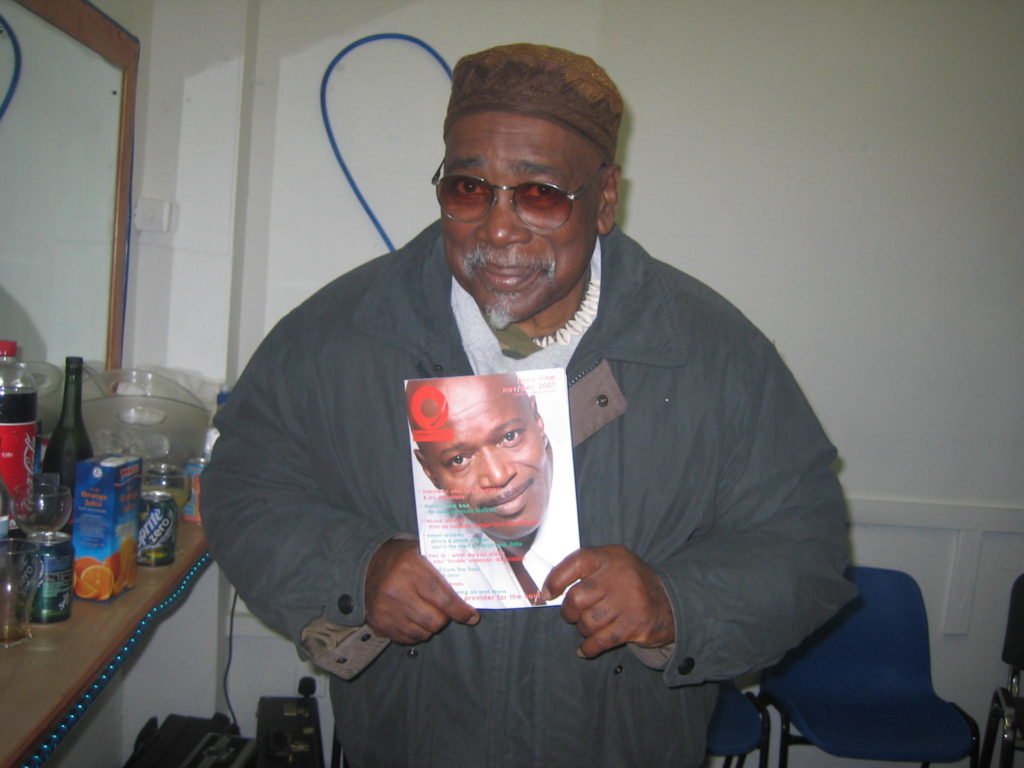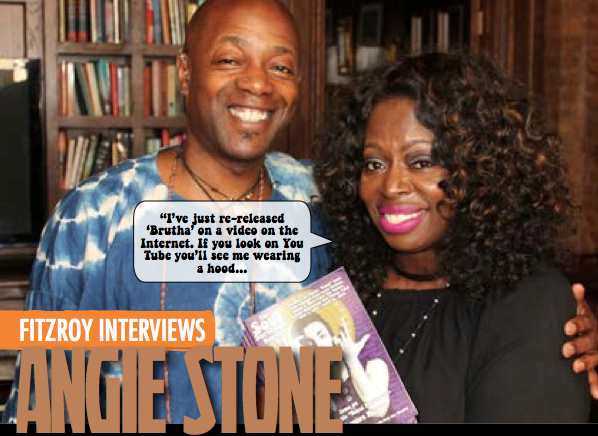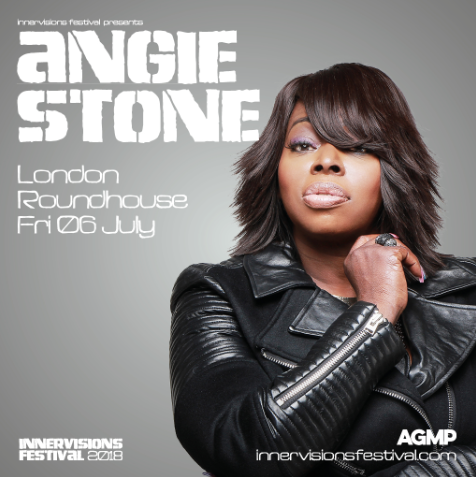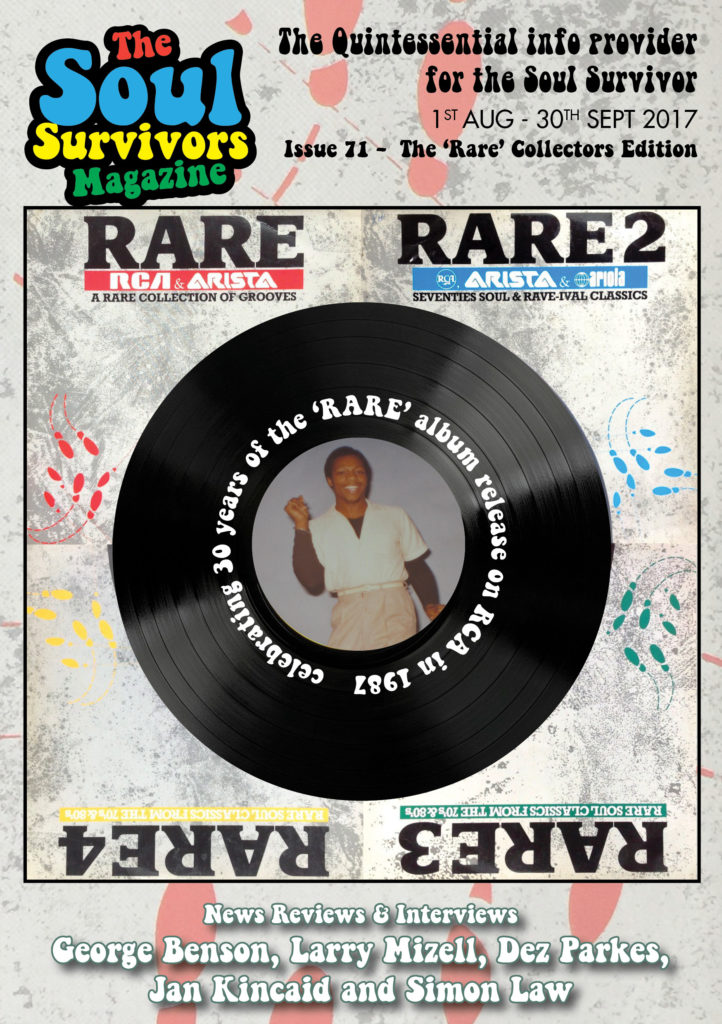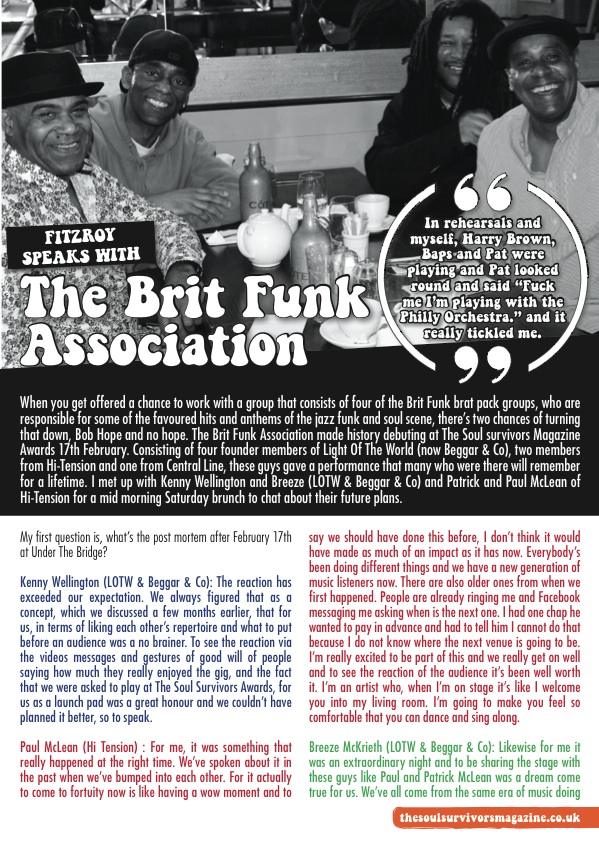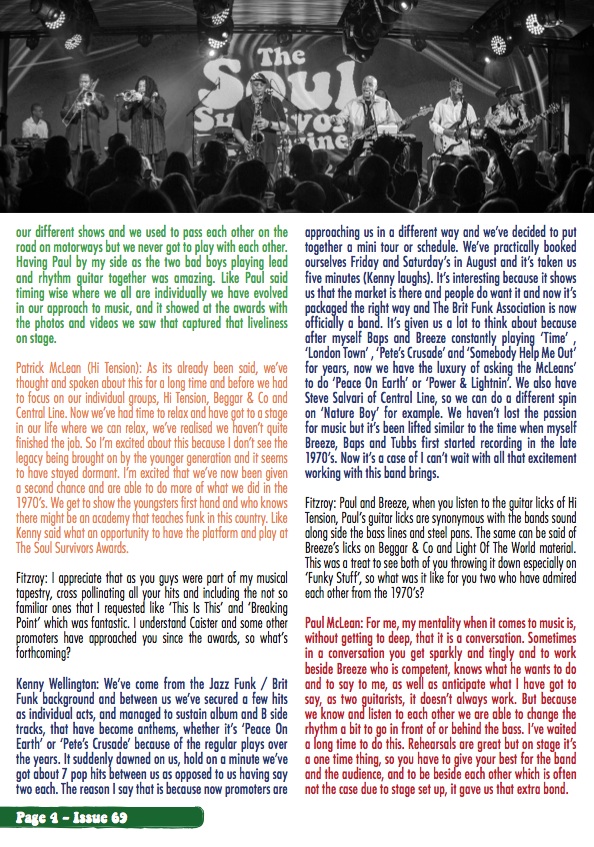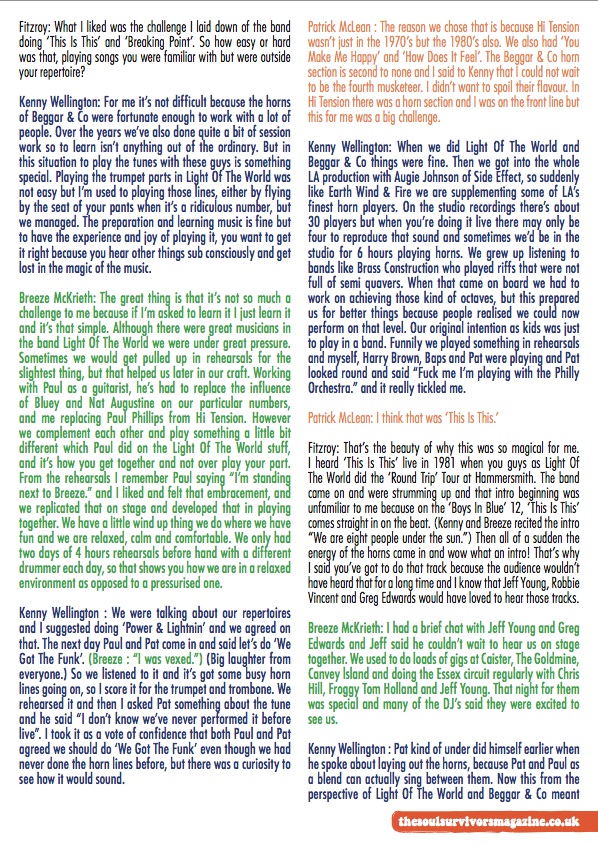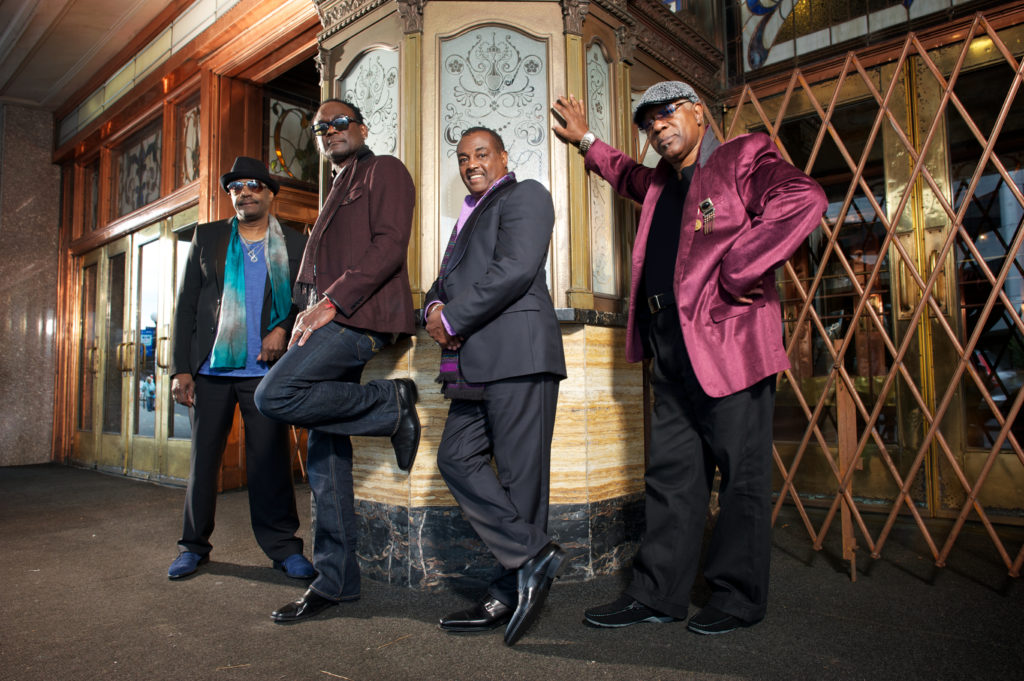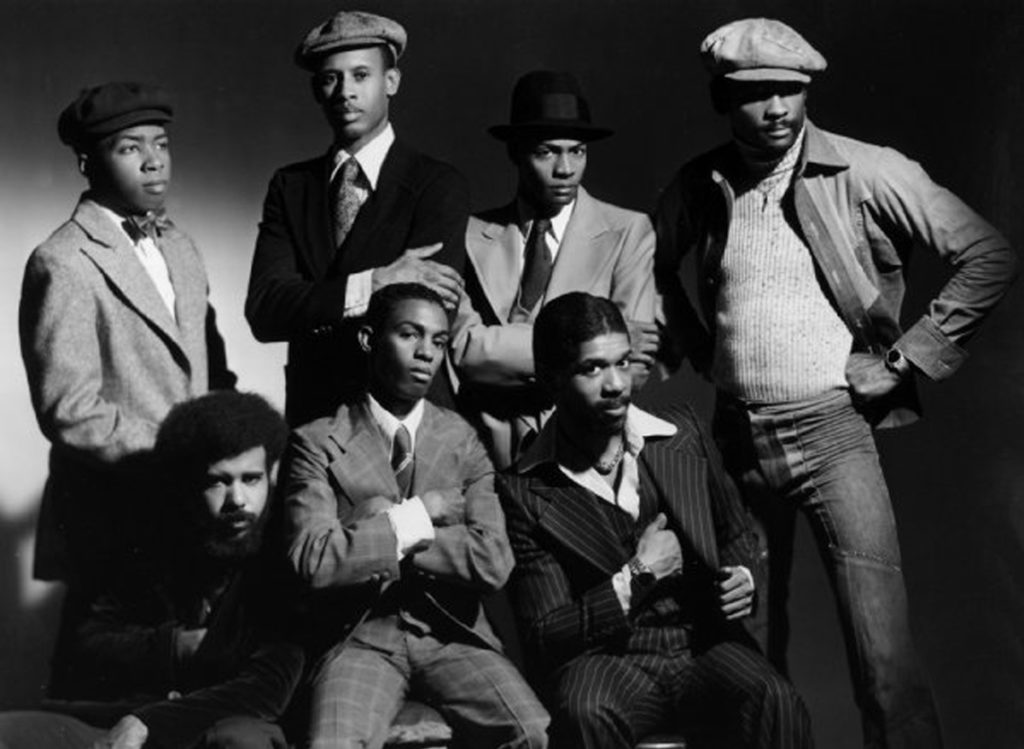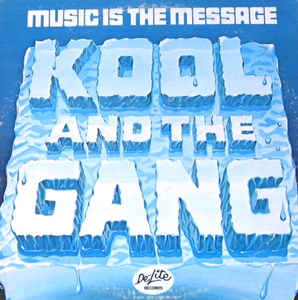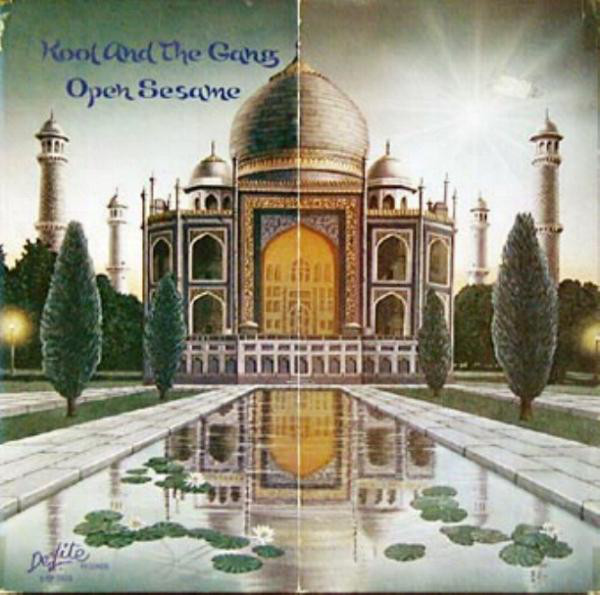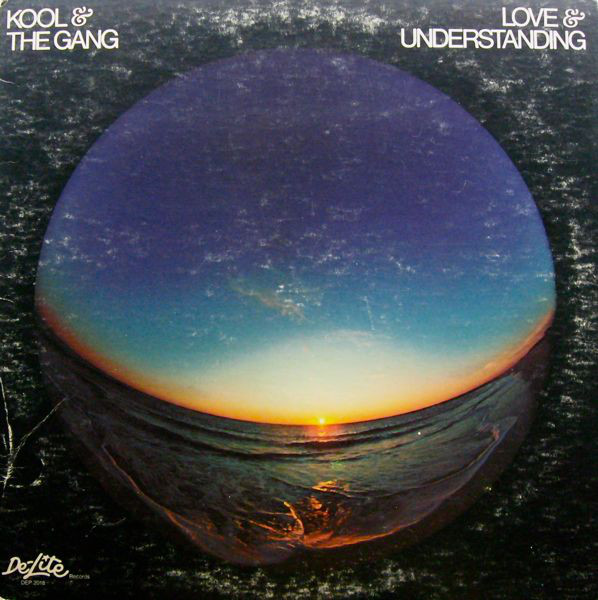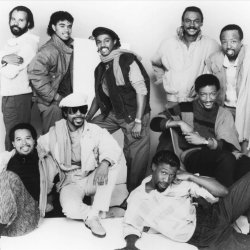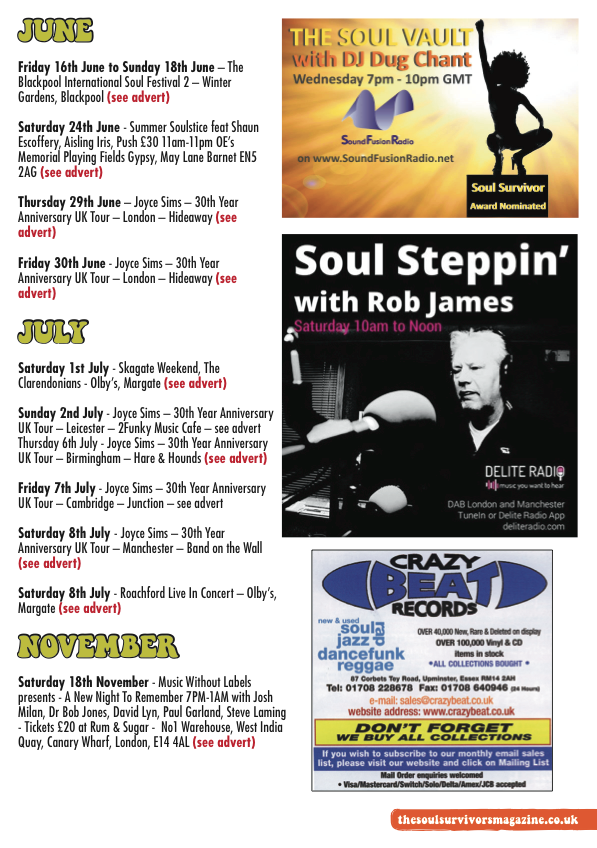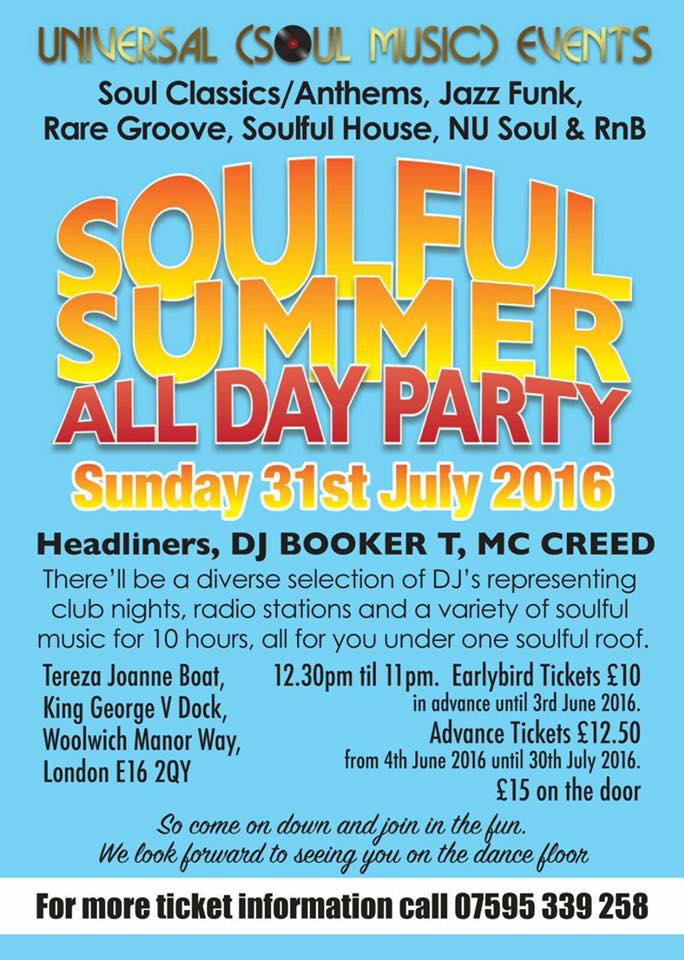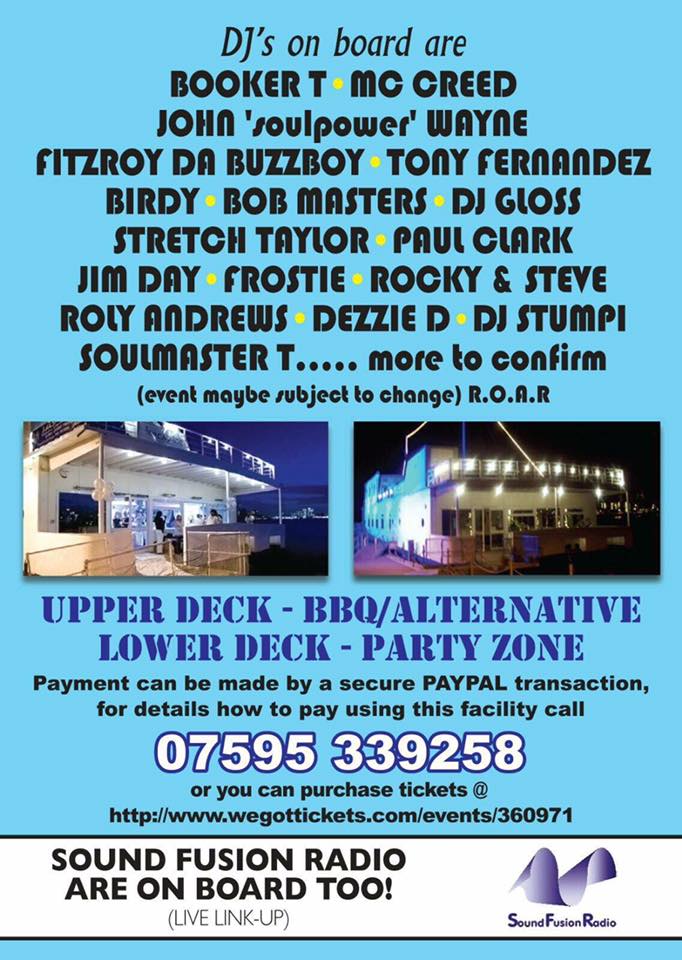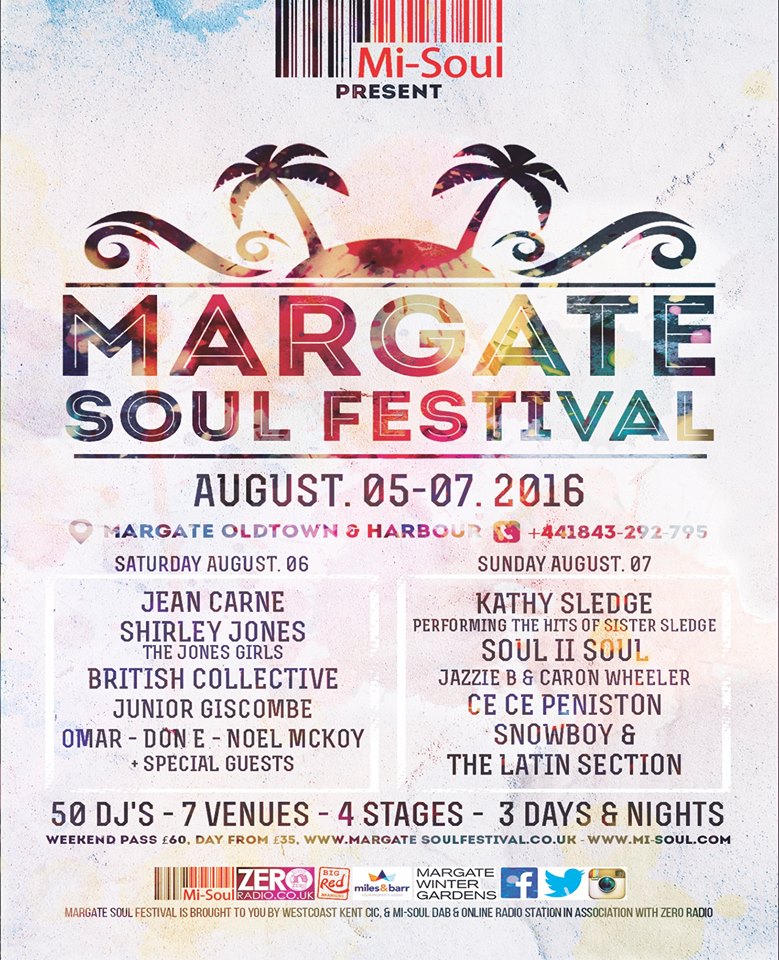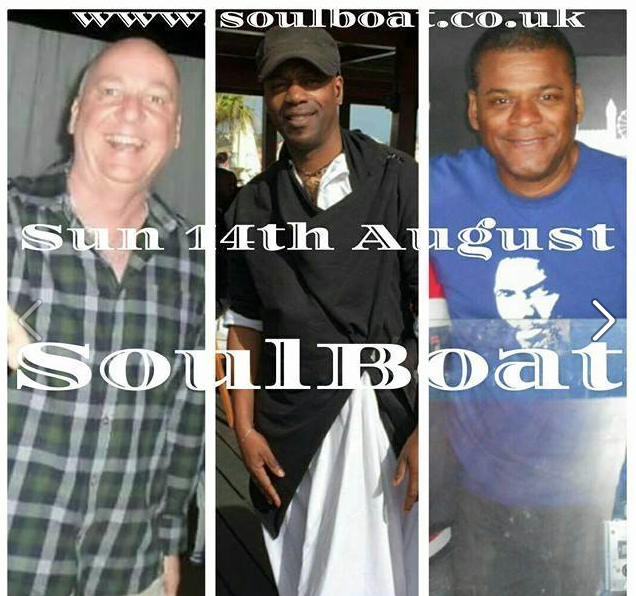Being Single and 50 on the Soul Scene
It’s interesting being back out on the dating scene after an 18 year relationship and I find that there are many people in their 40s, 50s and 60s who find themselves single for whatever reason so how do you find that new partner?
Two years ago when I started dating again my younger sister said to me ‘oh its all changed now people meet on dating apps, go for coffee and split the bill’, to be honest I was a bit worried as I’d always liked talking to people, having fun and if there was a spark and they asked me, going out for dinner and bottle of wine whilst we chatted and got to know each other better. I would also expect them to pay, even though I would offer to split the bill I would be surprised if they accepted and would be unlikely to go on a second date. Therefore how does online dating work for our age group?
OK so I tried Tinder, it was the only one I knew of in my defence but there are loads now Bumble, Zoosk, Elite, Match, eHarmony, etc. I did chat to some nice guys and lots of complete tossers too, I’m afraid but I suppose at least you can filter out a little bit before you arrange to meet. The thing I didn’t like was that it was all based on how you look which I don’t think is the best way to know if there is any chemistry. Attraction is based on lots of factors and for me I need to be able to talk to someone, to feel I can trust them and for them to make me laugh. I did meet up with one chap though and we went out for a few weeks then I decided that dating apps were not for me, although I do have a friend who met her now husband through one so I suggest you try it and see if it works for you. What have you got to lose, eh?
What next for real life daters?
I wanted to go out more, get fitter, have fun and make new friends whether that was friends to hit the dance floor with or someone as a potential partner so I started to go to soul nights on a regular basis. I had found my nirvana as the soul family have in my opinion always been the best of people, kind, caring, considerate, there is never any trouble or arguments so the atmosphere has always been positive and the most fun. I know that I have something in common with whoever I meet instantly (our love of good music), I can chat over the course of the evening and test out the chemistry on the dance floor before agreeing to give out my number, if they ask, of course. I also feel safe as I know lots of other people who would keep a vague eye and be there if anyone got a bit handsy. I have met so many new people and kindly been asked out on dates by some very respectable gentlemen who have always treated me very well. That is not to say that every relationship works out for whatever reason but that is the nature of the game, isn’t it? You’ve got to kiss a few frogs before you find your prince!
I wish all my single friends the best of luck in finding their Soul Mate.
Join me and my beautiful soul friends at Soul Sophisticates Valentines night on Saturday February 15th at The Trading House, near Bank, 8pm until 4am. Dinner packages, birthday, VIP and group bookings all available on Eventbrite at https://www.eventbrite.co.uk/e/soul-sophisticates-tickets-81754845945 or contact davina@soulsophisiticates.com or call Martyn at James Shoecare on 0208 550 1440
What music shaped your formative years between 1932 in North Carolina until you became an accomplished drummer, having relocated to New York City playing jazz, R&B and Bossa Nova in the 1950s and 1960s with Bill Doggett, King Curtis and a spell at Harlem’s Apollo Theatre?
Jazz, I was listening to Dave Brubeck, Sonny Stitt, Stan Getz and rhythm & blues artists like Paul Williams and The Griffin Brothers. Most R&B music was played by jazz musicians and every musician came out of R&B and Blues bands. You didn’t come out playing jazz straight away back in those days.
How old were you when you came to the East coast?
Straight out of high school, so I was eighteen.
What led to you setting up The House Of Fatback?
After working with King Curtis and those cats I was working up in the mountains doing cabaret with The Ron Allison Band. Playing cabaret I decided I wanted to create my own band and put together a three-piece group. I’d done a lot of recordings as a session musician and I ended up getting blackballed, so I started recording with my own band and other artists as a record producer.
Where does the term Fatback derive from?
Whilst working with the Ron Allison band we had the most popular session guitarist. His name was Eric Gale and I had a beat that he’d like me to play. He would say “Dude give me that greasy beat, that beat is like fatback man.” So when they asked for the fatback beat I knew what they meant and they ended up nicknaming me ‘fatback’ as I was the only one that played that kind of beat. I got that beat as a combination of a calypso beat with a backbeat.
How did you link up with guitarist Johnny King?
When I was putting the group together I was looking for a rhythm section. Whilst I was playing in the Jewish Kaskaskia Mountains at the weekends and during the summer in the hotels, Greg Decouder (who was a producer) was my roommate. He told me about how he had studied and analyzed the Motown sound and he had deduced that once you had a formula you stuck with it. I had a buddy called Warren Daniel who knew a guitar player called Johnny King. Johnny King and his bass playing partner Johnny Flipping had both worked with Bill Doggett. Earl Shelton on the horns came on board with George Williams and we remained together for thirty years.
This led to the Perception deal I take it?
That deal was a fluke as I was shopping the Fatback Band around town at all the record companies at the time when Warner Brothers and Atlantic Records were small labels. I bumped into a friend called Boo Frasier who advised me that he was just starting a label called Perception with a partner and I informed him of my group that I was trying to get a deal for. He hadn’t heard anything thing but I told him of an idea that I had to record some country and western funk and he liked the idea. I had no idea when I went to the studio what I was going to do but we did the album and they put it out. The tune people fell in love with was ‘Going To See My Baby’ but the radio stations didn’t like it as they weren’t used to that raggedy raw sound and no one would play it. So they took the record to the deejay Frankie Crocker who said that it was the funkiest thing he’d ever heard in his life. He started saying how raw and nasty the sound was and people started catching on. That record paved the way for groups like BT Express and all the little street bands like mine to come through. All the record companies were trying to get records to sound like the Fatback sound but they couldn’t get it. My sound was more underground and didn’t really take off until fifteen years later because everyone was used to the more over ground sound. When we went into the studio to record we had no idea of what we were going to play. Most people already have arrangements but we had nothing. I used to call it my live studio sound and I would bring people in and if they started dancing I knew we had the right groove. ‘Street Dance’ came from there too and our first single ‘Yeah’ and via each album you could hear our growth in the sound which got better as time went by. 
Off the second album ‘People Music Fatbackin’’ does sound like a cross between Kool & The Gang and Deodato’s ‘Rhapsody In Blue’. Both of which were released in 1973. Which was first?
Deodato copied me. You see a lot of the musicians in New York knew about Fatback because I was already in the recording world and every drummer copied that style and they would call it the fatback beat. It was the first of the disco beats.
I’ve spoken to Robert Khallis Bell of Kool & The Gang, Larry Blackmon of Cameo and Randy Muller of Brass Construction all of whom confirm that there was a big street funk fraternity out of New York and the East coast.
That’s right and Fatback opened the doors for that so the record companies wanted their own versions of that. What happened at Perception was that the label was going broke and our first two albums just about earned Boo the money he had borrowed from his family. He was going bankrupt and said it was nothing personal but he left us stranded without a deal. Whilst shopping for a new deal and coming out of Polydor records my lawyer hooked us up with Spring Records after looking at a dubious contract that Mercury was offering.
How did you form your longstanding working relationship with trumpeter/ keyboardist Gerry Thomas?
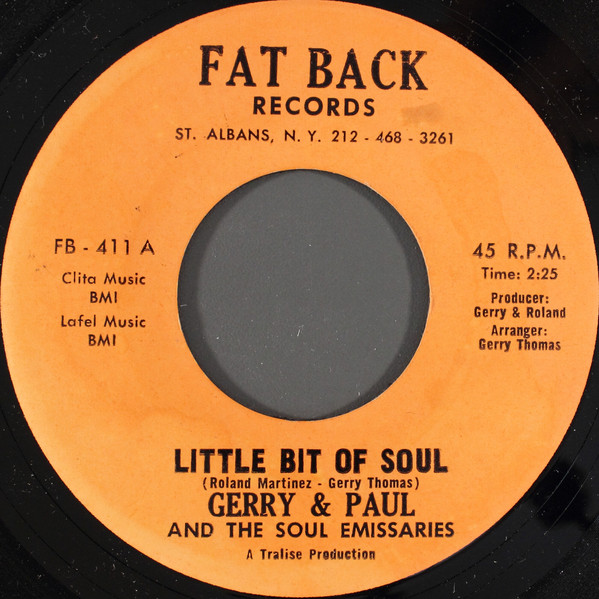 Gerry was one of the musicians that was in the band that I was in, featuring Eric Gale.
Gerry was one of the musicians that was in the band that I was in, featuring Eric Gale.
Oh I see so how did that work with you and him, was he moonlighting whilst working with Jimmy Castor?
No that is not how it went. He left Rod Allison’s group and went to join Jimmy Castor. In the meantime Gerry and I had formed a relationship producing records together on my Fatback label. When he wrote ‘Spanish Hustle’ he offered it first to Jimmy Castor but they couldn’t work out the right publishing deal so he gave it to me and we recorded that as a massive hit.
After the third and last Perception album you join Spring/ Polydor’s Event label. ‘Mr Bass Man’ is a killer but ‘Keep On Stepping’ and ‘Wicky Wacky’ would become the club anthems. By this time the bass lines of Johnny Flipping would simulate one of a reggae ilk on both those tracks. How much did the Caribbean and reggae influence have on the band, as much later this would be evident with ‘Spanish Hustle’ and ‘Night Fever’?
Remember what I told you I got my beat from?
Yes.
It came from reggae and calypso but what I did was put a two and four back beat to it, which the reggae didn’t have. Whilst playing at the cabaret dances the people loved calypso music and it was that with a New Orleans feel that influenced the Fatback Sound. Now if you listen to ‘Going To See My Baby’, four tunes came out of that like ‘Wicky Wacky’ and ‘Bus Stop’. At night we’d play the tunes differently and never the same way twice. So when we went to the studio we’d already written another tune on top of it and had performed it unconsciously but we were not aware of that. When you have a band that is working every weekend they are writing tunes in between.
When I hooked up with you at Southport in 2005 you told me that your track ‘Dance Girl’ was controversial with the Rimshots and that you were going to sue them, why was that?
They stole it and took my tune and didn’t pay me royalties and that is another one that came out of ‘Going To See My Baby’, you can tell. Remember what I told you earlier about the formula? That’s what I used throughout my Fatback career.
But they did credit you on the track eventually?
Yeah they did but I didn’t get any money. Not one penny but we worked out an agreement. Joe Robinson wasn’t the most up and up person in the world but he paid me back after I sent some people who represented me to talk to Joe and he ensured we performed with The Moments whenever they did a show.
Around the same time there were quite a few street funk bands establishing themselves like Kool & The Gang, Brass Construction and later Cameo, BT Express, Crown Heights Affair and Mass Production. All had a horn section but I think it’s fair to say that Fatback had an identity with your party hustle chants and Caribbean influences that stood out. Randy Muller advised me that he felt pressured when disco came in to write more lyrical songs. Did you experience that?
No, Fatback had no pressure and of all the groups out there I have more records than all of them apart from Kool and The Gang. We did about forty albums and I had the complete freedom to do what I liked. If I told them I wanted to put a dog on the record and that would sell they’d push it. (Bill laughs). That’s why my songs didn’t sound like others, when the others turned left, I went right and if they went straight ahead I went the other way. That’s why my music never really charted but when the deejays came in that’s where we became popular.

 ‘Raising Hell’ and ‘Yum Yum’ albums with their sexy funk, disco, jazz and Caribbean flavours remain two of my favourite albums that endured a degree of commercial success. ‘Raising Hells’ ‘Bus Stop’ created a dance craze to be capitalised five years later by another bullet on the future ’14 Karat’ album. How did you receive that adulation as this did catapult the group into the commercial arena more so I guess in the UK than the USA?
‘Raising Hell’ and ‘Yum Yum’ albums with their sexy funk, disco, jazz and Caribbean flavours remain two of my favourite albums that endured a degree of commercial success. ‘Raising Hells’ ‘Bus Stop’ created a dance craze to be capitalised five years later by another bullet on the future ’14 Karat’ album. How did you receive that adulation as this did catapult the group into the commercial arena more so I guess in the UK than the USA?
I never knew until Gerry Thomas came to the UK with Jimmy Castor and he said they played the hell out of ‘Bus Stop’. When I first came to England I toured with a little van and did bars and cabaret places in little country towns so I built my own following before I did big concerts.
I love the funky breaks created from ‘Put Your Love In My Tender Care’ a great track.
Whoa… that track never did anything and we never played that record live. Another one we didn’t do live was ‘Money’ until it became a hit. We had to go back and listen to the track and it took us two months to learn how to play it as we did everything as a one time take recording. The same with ‘Backstokin’’ a track which we went to court with with Dr Dre who sampled and contested his usage of it and we won.
Apart from ‘Party Time’ the one that always melts me is ‘Groovy Kind Of Day’
“Oh, oh, oh, ‘Groovy Kind Of Day’ came via our keyboard player and I wrote the words to it. We started the beat in the studio and I directed the bass player and the keyboard player who laid it down. In most of the tunes you hear, the track came first and then we would add the lyrics, then I’d add a rhythm or melody.
I remember you doing that at the Jazz Cafe around 2005 and I was so pleased you did it cause it sounded so amazing.
That day was the first time we did it as we questioned ourselves if it was too jazzy but we do it if we are in an intimate club setting now.
The ‘Yum Yum’ album is incredible with ‘Yum Yum’ as a ‘Bus Stop’ Part 2 in terms of a sing-along classic. But every track practically stands out with its own merit, in particular ‘Let The Drums Speak’ the sensual ‘Feed Me Your Love’, other favourites I used to like playing was ‘Hey I Feel Real Good’ and ‘Boogie With The Fatback’.
Bill interjects… If you wanna boogie you gotta boogie with the Fatback. We had such a raw feeling that everybody wanted to sound like Fatback. Now Bobby Robinson hired Johnny King to produce some records and Bobby asked for the Fatback sounds. Johnny said “You’ll only get that from Bill Curtis as it comes from the top of his head.” Johnny advised that he couldn’t do it stating that he didn’t think that I think like the average musician and that everybody follows my lead. Johnny later lost that producing job.
How did you recruit Phylis Hyman to sing the title album track ‘Night Fever’ that is very similar to ‘Spanish Hustle’?
(Bill laughs) I reach out to different people. Gerry and I knew Phylis who was a New Yorker doing lots of background vocal sessions. Gerry used to arrange his music on the way from his house to the studio on the subway and brought something different to the rest of the Fatback sound. He was the person who could interpret what I wanted, make it right and make it fit. He was the key to Fatback, as he knew how to implement my ideas. I wasn’t a singer but Gerry made people think I could.
My favourite off the ‘Man With The Band’ album apart from ‘Midnight Freak’ is the uplifting ‘Mile High’ which is not a typical Fatback sound but glorious.
That is one of my favourite albums but no one dug it but me and that is a bad thing when musicians like the albums that don’t do anything. However ‘I’m the Man With The Band’ (Bill laughs) came from another keyboard player who was blind and a friend of Deborah Cooper who wrote ‘Mile High’ and I wrote the lyrics.
What made you simulate ‘Bus Stop’ with ‘Double Dutch’ on the NYCNYUSA album? 
When we played ‘Bus Stop’ it morphed into ‘Double Dutch’ as the bass player would change the groove. When we recorded it I thought about the blue jump rope thing with the two ropes and the double dutch skipping thing.
Now named Fatback, the ‘Fired Up N Kicking’ album hosts the incredible ‘Snake’. One of our most respected deejays Paul ‘Trouble’ Anderson used to play that in a jazz funk set and everybody just moves to its infectious rhythms.
Oh yeah we did that during the Caribbean festival that was on every year in New York’s Eastern Park Way. That is one of my favourites and again we never played it live. We play it at dances because as a group we play all of our own songs and never anybody else’s songs.
What is the story of ‘King Tim 111’ the B-side of ‘the soothing ‘You’re My Candy Sweet’ that is credited as the first commercial rap song prior to ‘Rappers Delight’? 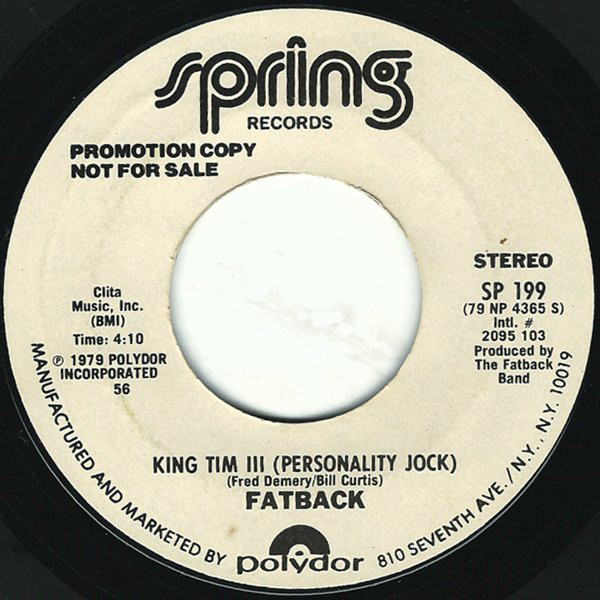
(Bill laughs) Well we did the album and I was listening back to it and I couldn’t hear a song that stood out as a hit. So I mentioned to Gerry that I had a tune and that I wanted to put a rap on it. He said “You can’t rap so watcha gonna do?” Our roadie said he had a friend who could rap so we got Tim in. We had the tune name as ‘Keep The Beat’ then changed it once Tim rapped on it. I then took the tune to a radio convention for the deejays with my friend Boo Frasier. I asked the deejays if they’d play it and they said yes as there was nothing else like it and it would change up the industry. I took the info to Spring Records for them to put it out but they said no in order not to offend the deejays they felt were already doing that. They would not support the track with any finance if I insist and wanted to push ‘Candy Sweet’. They eventually agreed to put Tim 111 as the B-side. Meanwhile Joe Robinson was in the studio pushing his music to the deejays and they were telling him that Fatback had the hottest track but that no ones was playing it as it was a B-side. Joe heard it and then went into the studio and did some shady stuff and got his track (‘Rappers Delight’) on the market three days later and the rest is history. After that Spring Records still refused to put it out saying Joe had too much of a head start but I told them they had it first, and that is the story. When I speak to them about it now they suffer from amnesia. (Bill laughs). The nearest thing after that we did was ‘Money’ but then I wouldn’t do the rap thing again cause I like to grow. I didn’t think rap would last that long but I certainty didn’t want to get locked in it.
As we come to the 1980s and the ’14 Karat’ album (which is my favourite of that decade) you have a new lead vocalist in tow. ‘Lets Do It Again’ is a great opener, ‘Angel’ a nice ballad and ‘Backstrokin’’ creates a new dance sensation with people swimming backwards on the floor. Did you know that?
(Bill laughs in disbelief) ‘Backstrokin’ wasn’t about swimming though!
I also liked the social messaged ‘Concrete Jungle’ as when I heard that it blew me away and reminded me of ‘Money (Gotta Get My Hands On Some)’, ‘Lady Groove’ and ‘Your Love Is Strange’ but the melter is the jazz bubbler ‘Chillin’ Out’. It is so sexy from beginning to end. What inspired that track?
(Bill laughs) ‘Chilling Out’ was a sleeper and we’ve never played that tune live either. People never picked up on that and I couldn’t get anyone to play it. People felt that those tunes were not Fatback but I wanted to show that we could be versatile in our musical direction. It came out like creatively just like ‘Groovy Kind Of Day.’ 
Exactly I loved it. I loved ‘Kool Whip’ which Robbie Vincent used to play regularly on his Saturday afternoon show. Now the Fatback sound was definitely changing, it still had the horns and was funky and by the next two albums ‘Gigolo’ and ‘On The Floor’ the moog bass and synths were rife and the horns had disappeared. So many bands from the east coast like Brass Construction Mass Production etc. lost their brass anchors too. How did you adjust to that?
We were moving into the electronic stuff and people didn’t want to pay for the big bands anymore, so using the synth we could still have a horn sound. I usually now carry eight pieces with me but now its around six as we cannot afford to pay for that now. Fatback is a musician band that improvises so the musicians have to bring something new to the band and improvise on a particular song so I don’t hire outside my band.
‘Is This The Future?’ was incorporating the new sounds more so and the title track was huge with its almost Grandmaster Flash ‘The Message’ type theme?
I wanted to move into another direction as I wanted to change my sound and that track was laid with the social message rap as a feature.
I did like ‘Sunshine Lady’ the more musical track from that period.
Ahh with ‘Sunshine Lady’ that was Michael Walker the lead singer and he fell in love with Linda Blakely aka the Mean Machine so he wrote that ‘The Girl Is Fine’ and ‘I Found Loving’ due to her.
Ok, that moves nicely into my next question. What did you think of the late Steve Walsh’s version of ‘I Found Loving’?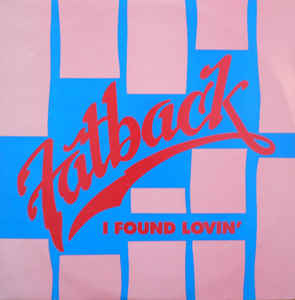
Steve was a friend of mine and he travelled with the band and he felt he could sing that song even though he was our MC. He asked if he could sing the tune and I had no objection and he brought new life into the tune. I have a live twenty minute version of us and Steve live from the Hammersmith recording, which the BBC recorded.
I’ve seen you a few times over the years at Baileys in Watford, Hammersmith Palais, The Jazz Cafe and Southport Weekender. Which venues hold the most memories for you having performed here for nearly forty years?
The Jazz Cafe and Baileys in Watford, I loved that venue and was sad when they went out of business those Baileys gigs were nice.
How did you hook up with Bah Samba to revamp the incredible millennium version of ‘Let The Drums Speak’ and ‘Spanish Hustle’?
The agent who booked me managed them and they wanted to collaborate with us. So both Fatback and Bah Samba were able to get both our names out there.
Did you mind doing that?
Well no because back in the day Heatwave approached us to come on tour with us and open up. They were good too and blew people away and made me step up my game and we’re still friends and they always show gratitude to this day as they toured England with us.
Which other bands did you admire?
I never listened to bands that much but I liked Heatwave, BT Express and Kool & The Gang. I liked Earth Wind and Fire and The Commodores but they were not street bands, they were very polished but I’m an earthy man from the street.
Thanks Bill it has been an amazing insight.
Thanks for calling me. I enjoyed the interview.
I have spoken with Angie Stone quite a few times and documented her ‘Mahogany Soul’ ‘Life Story’ in The Soul Survivors Magazine Issue 65 two years ago. I seen her live quite a few times as well as being blessed to DJ for her at the old Town & Country kentish Town in 2005 and at Indig02 in 2012 when she shared the stage with our UK ‘Souljah Survivors’ Don-e and Omar. I caught up with Angie one of the main headlined acts last night, ahead of her sold out concert at The Roundhouse tonight 6th July for a short and sweet moment. So here is our me at our SS HQ office and Angie at her hotel virtual reality evening soiree ‘teh ta teh’..enjoy Fitzroy
Hi Angie
“Hey Fitzroy Whatssup?”
You sound like you remember me?
“I do(ok) you did the drawing of me”(yep guilty as charged).
Nice to speak with you again. Last time spoke you mentioned in order to tell the story of your first break into the industry with Sequence, that there should be a movie, any developments on that happening and if so who would play you?
“There have actually been some talks but whether it materialises into anything phenomenal remaining to be seen. A couple of names have been thrown around but I don’t think they are good choices. I would want someone who resembled me. I know Jennifer Hudson’s name came up once but again I don’t think that she is a befitting choice even though she is one of my fave singers, I don’t think she resembles me enough”.(Ok it’s still in working progress).
I have seen you quite a few times at various venues, and it would be fair to say you have huge fan base here in the UK. What is it about performing in the UK as to why you can’t turn down an invitation to perform?
“I just love the energy here and the people. I think because I signed my record deal here with J Records, it’s like a home base for me.”
I saw you at outdoor The Fold Fest at Fulham Palace Gardens event two years ago. How did you find performing to a more festival loving audience in an open space event as opposed to an indoor R&B soul loving audience?
“I love them both but I have to say I love the outdoors best.” 
I’ve recently seen the film Southport weekender film premier One Nation Under A Groove and they have included a part of you performing where you teach the audience how to to the Angie Stone Soul Clap.(“Uhmm Hhmm”) Will you be doing that exercise tomorrow night?
“Most definitely.”
Out of your vast catalogue what will you be performing tomorrow?
“I got a lot of requests and I can’t do them all. I will be doing melodies of the ‘Black Diamond’ and ‘Mahogany Soul’. For the most part your Angie Stone grooves and we just gonna jam and gonna have fun. I don’t want to give it all away.”
(Photo taken by Fitzroy Facey June 2016 @ Fold Fest Fulham Palace Gardens London)
How long is your set?
“It all depends on what the crowd says. It could be short or long. But I”ll have you know that it’s already sold out and that is a big deal for me.”
Have you ever done the Roundhouse before?
“No I haven’t. I hear there is a festival with other artists here.”
Yes there’s quite a few artists lined up like Leroy Hutson, Cymande, Incognito, George Clinton and Lalah Hathaway was earlier in the week. It’s a two week festival which is quite brave considering the World Cup is on. So it’s really good that your event is sold out
“So the festival has been going fairly well?”
I think it started this week and and by all accounts Lalah Hatahway was a great night. You are one of the headline acts so it’s to be expected that your would sell out. Will you be doing ‘Brutha’?
(Angie laughs) “Of course.”
Do you have anything new coming out?
“Yes I have a new album I have just finished which remains untitled but it’s coming out hopefully before the end of this year.”
Last question, when is Angie Stone doing a jazz album?
“Probably once I do a gospel album ha ha”
Thanks Angie
“Thanks Sweetie I look forward to seeing you tomorrow”
Thanks to Sacha and Rosalia at Hush PR https://www.facebook.com/hushhushp
For ticket availability please click on this link http://www.roundhouse.org.uk/whats-on/2018/innervisions-festival/angie-stone/
In the words of the late Robin Williams “Gooooood Morrrnnning” fellow SOUL SURVIVORS. Pinch punch first of the month, no returns and a Two Ronnie Phantom Raspberry Blower “Plluuurrrrbbbb”. The August edition of The Soul Survivors Magazine has arrived nice and ‘So Early In The Morning’ like Trouble Funk(What a tune).
This months new reviews and interviews features Mike Vitti’s chat with George ‘Bad Benson’ and East London’s finest Dez Parkes ,celebrating 30 years of the very first and monumental ‘Rare’ album release on RCA back in 1987. Not forgetting an interview with Mr ‘Places And Spaces’ musical genius Larry Mizell, Simon Law and Jan Kincaid of MF Robots.
We also have a BRAND NEW feature for those who like their soul music north of the south of the UK, entitled Northern Soul Survivors, curated by our new columnist Les Csonge and his partner in rhyme Ann Taylor. There’s are lots of interesting information on weekenders, soul holidays abroad and a few Micheal Henderson ‘At The Concert’ dates, to diarise and prioritise. To get yours subscribe via www.thesoulsurvivorsmagazine.co.uk and subscribe to receive your Quintessential ‘Info Provider For The Soul Survivor’ for August and a Barry White ‘September’ 2017.
After the successful debut at The Soul Survivors Magazine 2016 Awards The Brit Funk Association are in major demand like as a live band. This Bank Holiday Sunday 27th August 2017 , they will be blessing the funk at Campsoul in Oxford so here we are sharing the entire interview published in issue 69. Enjoy Fitzroy. To get your tickets please go to http://campsoulfestival.com
Fitzroy speaks with Robert ‘Kool’ Bell and Ronald Khalis Bell bassist and horn players of Kool & The Gang who are performing at The Indig02 this Sunday 11th June 2017, the first of a few UK dates!
Fitzroy: How was early life in Ohio with you, Robert, being the eldest and Kevin, the youngest forming The KG’s and at what point did you move to New Jersey?
Robert : I left Ohio in 1960 when I was 10 years old and our group came together in 1964. At primary school I met Dennie Thomas, George Brown, Rick West and Claydes Smith. We first called ourselves The Jazziacs. Going back to being a youngster, I didn’t know I was going to be in the music business. I was two years old and my Grandfather had me working with him underneath the car, and my Grandmother would holla “Get that boy out from under the car.’ When I was 7 years old I built my own motorbike by taking a lawn mower motor, and putting it on a bicycle frame. Before we left Ohio in 1960 my brother Ronald and I used to beat paint cans like bongos, and depending on how much paint was inside, this would determine the tone of the sounds we made. When we moved to Jersey City my mother bought me some bongos. I later went on to the bass guitar when I was 14.
Whilst you picked up the bass and who were your bass influences?
Robert : Spike Mickens our trumpet player and his brother who played the bass guitar, used to practice at their home. I’d go there and fool around with the bass. I could play one song, Herbie Mann’s version of ‘Coming Home Baby’. My brother suggested when we were playing at the Cafe Mar in the village area, to play ‘Coming Home Baby’ on the bass, and I could do that all on one string. That was the beginning of my bass career. During that time Mr Charles Smith who became our guitar player when we joined the Soul Town Band, used to show me how to play different licks. We became the back up band for Soul Town. Soul Town was trying to be like Motown and we had eight to ten artists and had to learn how to play Motown songs behind these local artists, and that is how I started learning my chops. At that time whilst we were the Jazziacs, I was listening to bass players like Ron Carter, Reggie Workman of The Jazz Crusaders on the jazz side, and at the same time James Jamerson of The Motown Funk Brothers on the R&B side.
Fitzroy : Ronald with influences ranging from Miles Davis, John Coltrane & James Brown, where were your early gigs and do you have any memories of individual talent who broke through in the late 60’s early 70’s?
Ronald : I remember my father who was a professional prize fighter bought home a stereo and I was fascinated at this thing going around by itself playing music. Our Jazz influence being our first love came from Miles Davis, John Coltrane, Charlie Parker, Duke Ellington, Count Basie and Herbie Hancock. Because I played saxophone John Coltrane and Joe Henderson, Wayne Shorter, Archie Sheppard, Sonny Rollins to Art Blakey and the Jazz Messengers we kind of emulated them. Listening to a lot of Motown we worked with an organisation called a Soul Town out of Jersey City trying to emulate the Motown artist so that’s where we got our muscle in R&B influence from The Temptations, The Marvelettes, Stevie Wonder, Earl Van Dye & James Brown. Regarding memories At the café Wah, before we became Kool & the Gang we used to frequent there, Bill Crosby, Richie Haven and Richard Prior was there and we used to play for sandwiches. Yeh potato chips ‘Coming Home Baby’ by Ben Tucker and Herbie Mann we used to love playing that, in fact Kool used to practice bass to that!!
 Fitzroy : How did you acquire the name Kool?
Fitzroy : How did you acquire the name Kool?
Robert : Ok let me go back to Ohio. In the neighbourhood we had little street gangs and as a country boy coming to Jersey City, I had to adapt to what was going on. I noticed there was a guy who called himself Cool spelt with a C. I liked that and decided to take the name on as my nickname and spelt it with a K, not knowing that it would eventually inspire the name Kool & The Gang. When we became part of Soul Town and left to work at the Blue Note Lounge in Jersey we decided to make a name change from The Jazziacs. The clubs MC was a part of Soul Town and came up with an idea to advertise us in the window as Kool & The Flames. My name was in a block of an ice type font with the Flames name as a melted one. Our first manager Gene Redd advised we shouldn’t use the name Flames because of James Brown & Famous Flames and we didn’t want to have any problems with the Godfather. We went thorough a few names and decided upon Kool & The Gang. That was in 1968, which will be 50 years next year.
Fitzroy : The sense of black pride obviously had an influence on you during the 60’s Mohammed Ali, Nation of Islam and the clench fist of the Olympic medalist’s. At what point did you become influenced to change your way of living and become Muslim?
Ronald: The Islamic influence – well at the time everyone was trying to raise their consciousness, afro and the Afro American experience was all around, I guess it was time for change we were listening to Martin Luther King, Malcolm X, Elijah Mohammed speak all this energy for us, John Coltrane being a revolutionary in music, I don’t see it as a change I don’t divide religion up it’s like music is just one note. I read the bible, the Koran, the bahagamagita and lots of other things. It just evolved as a way of life and Islam was the only one that excluded none. It didn’t seem right to me to that the creator would not include all people. John Coltrane…he summed it up for me perfectly…a ‘Love Supreme’. I can’t speak for no one else but for me Islam translate into peace in Arabic, Muslim in English means one who submits themselves to the creator, and all people eat the food and breathe the air provided by the creator so I don’t see any difference in how we should treat each other.
Fitzroy : Same question to you Robert
Robert : During that time we were still young at grammar school and we used to play for different events. The Nation Of Islam would have an event they called The Bizzare, which had vendors, food and entertainment. We became the band that played for those events and we also did some fundraisers for the Black Panthers around the neighbourhood at the time. It wasn’t until a few years after that my brother and I decided to be come part of The Nation Of Islam around 1971-1972.
Fitzroy : I personally love ‘Music Is The Message’ as an album with the title track, ‘Soul Vibrations’ and ‘Funky Granny’ with your distinctive bass playing. How did you feel that the marriage between you and Claydes Smith worked? As with your individual guitar parts, yours are a few simple melodic impromptu notes and not pluck and thumping like Larry Graham and Claydes guitar is a very infectious lead?
Robert : Well we established that at Soul Town doing the Motown tracks and we shared and learned the tracks. Claydes was always simple but sophisticated and you hear that on tracks like ‘Funky Stuff’ especially when they do all the double mixing in the studio. Even Prince before he died said the first record he heard on the car radio was ‘Funky Stuff’.
Fitzroy : There were lots of east coast street bands like Fatback, Brass Construction, Crown Heights Affair and later Cameo cutting their teeth on the street funk. With all their different individual sounds, what was in the air to inspire that creativity and what was the edge that Kool & the Gang had as to why they were so successful with ‘Funky Stuff’ and ‘Jungle Boogie’?
Robert : We were incorporating our 1960s experience as The Jazziacs and what we learned of Motown at Soultown, listening to James Brown and being inspired by Sly & The Family Stone. We established ourselves with jazz & RB influences, which became the Kool & The Gang sound of the 1970s. We carried that through till we changed our sound again in 1979 when we added JT Taylor as a lead singer. I was hanging out in New York and every Friday night was ladies night so when JT became our lead vocalist we created the song ‘Ladies Night’ and now our sound has changed again. We became more pop, with ‘Ladies Night’, ‘Celebration’, ‘Get Down On It’, ‘Joanna’ etc. etc. It became an evolution of our music and we started writing those kind of songs because we now had a singer. Our producer Deodato said “Listen guys we got a singer in the band now and you have to make room for the singer”. We said, almost reluctantly, ok. (Robert laughs.)
Fitzroy : Your writing and productions are typical of that spirited era. Other street funk bands, Fatback, Brass Construction, label mates Crown Heights Affair, Mandrill, War and the KG’s also fused jazz soul and funk into a ménage I can only describe as musical magic. Was it difficult to maintain your individual imprint as most of the above acts had a brass section and their own brand of groove?
Ronald: It’s pretty much like today in Hip Hop like back in the Be Bop era people were listening to each other. Our sound was defined I think by the horns because that was primarily instrumental in a street background and the late Charles Smith came up with these incredible guitar line that were almost like James Brown but not quite it. The way he expressed himself playing those licks on ‘Funky Stuff’ our first record ‘Kool & the Gang’ it was all influence from our predecessors that came before us. We just carved out what we liked. I remember when I first heard the ‘Nutcracker’ I was in the 3rd grade in Ohio and that influenced me later to do ‘Open Sesame’ some of that sounds similar as well as John Phillip Souza music is universal. We’d listen Brass Construction to Art Blakey & the Jazz Messengers and Earth Wind & Fire and the Commodores. Ask Maurice White he played behind John Coltrane, Ramsey Lewis and Charles Stepney. We listen to everybody Marvin Gaye, Stanley Turrentine, Elton John, and The Beatles The Stones it was all there. Like I said before we had to back up Tina Turner & Temptation, Sly & the Family Stone wanna be’s. We started trying to make our own sounds that’s when we became creative.
Fitzroy : Which is you favourite Kool & the Gang album and titled track?
Ronald: Favourite album was the best recording, it was fun and fondest memory, we recorded it for 6 months that was ‘Kool & the Gang’ by Kool & the Gang. Favourite Kool & the Gang song would be ‘Celebration’
Ronald : Because everyone around the world has been living the dream and manifested actually. I had no idea that song would be what it is, it had a great groove on it and we were focused after ‘Ladies Night’ to continue with music as a pursuit. We started covering some tri ad cords like rock & roll and simplistic cord changes. I read some scriptures where man was being created by god and the angels were celebrating and praising god for doing that. That’s where the inspiration for ‘Celebration’ came from. That may be my favourite song “So every one man woman and child human being around the world come on”!!
Fitzroy : What’s yours Robert?
Robert : That kind of a hard question but I’d have to say ‘Ladies Night’ the first single with JT Taylor because I came up with the title.
 Fitzroy : Like most player bands of the time, vocals were not your main strength but you managed to do what I call the ‘hustle chant’ which is more like party lyrics (Robert: “Yes, chant music” (Robert laughs.) You created hits like ‘Jungle Boogie’, ‘Hollywood Swinging’, ‘Spirit Of The Boogie’ and the huge crossover jazz funk disco cut that made the ‘Saturday Night Fever’ soundtrack, ‘Open Sesame’. What actually inspired ‘Open Sesame’ as I remember a children’s program Banana Splits with the Arabian Knights cartoon that resonated with me whenever I hear ‘Open Sesame’?
Fitzroy : Like most player bands of the time, vocals were not your main strength but you managed to do what I call the ‘hustle chant’ which is more like party lyrics (Robert: “Yes, chant music” (Robert laughs.) You created hits like ‘Jungle Boogie’, ‘Hollywood Swinging’, ‘Spirit Of The Boogie’ and the huge crossover jazz funk disco cut that made the ‘Saturday Night Fever’ soundtrack, ‘Open Sesame’. What actually inspired ‘Open Sesame’ as I remember a children’s program Banana Splits with the Arabian Knights cartoon that resonated with me whenever I hear ‘Open Sesame’?
Robert : My brother Khalis wrote that song and it was our approach to the dance floor sound, which was dominated by Barry White, Donna Summer, and dance records happening at the time. We wanted to do something but make it jazzier. So we looked into listening to the kind of scales of someone like John Coltrane. That’s when my brother came up with the horn line because Earth Wind & Fire was out there doing their thing, so my brother came out with ‘Open Sesame’ with those Arabian scales horn lines. Really my brother was just experimenting and the band said ‘What was that, that your brother did?” when he brought that into the studio. (Robert laughs).
Fitzroy : What was the inspiration for ‘Summer Madness’ and adding the soothing jazzy vocals from Something Sweet female vocalists on the extended live version?
Robert : ‘Summer Madness’ was a vamp from a song called ‘You Don’t Have To Change’ from the ‘Light Of Worlds’ album. If you listen there’s a keyboard change of the song vamping out and my brother said “Hey that’s two songs in one”. One night he had just got the Arp Pro synthesiser and was messing around with it till 5 o’clock in the morning. He took the second part of ‘You Don’t Have To Change’ and put a solo on it with the Arp, then Claydes came and played his guitar and we decided to call it ‘Summer Madness’. We didn’t know that the song would become what it is today with Will Smith getting a Grammy for ‘Summertime’ and other rappers and movies using the song.
Fitzroy: Your trade mark music of the early funk jazz era focused universal love peace, unity and “getting down” with the consciousness like the other “super group” who shared a similar kind of success EWF. You seem to source your energy from Africa but share its history with the world regardless of their origin. Was that easy to convince the corporate record company headed by Polydor?
Ronald : Wow oh how to answer that….In a sense we had a record company that allowed us to do whatever, they saw us a creative energy, entity and source. There were times when it was questioned but they were supportive. But when they asked us to make some more commercial music we decided to. Gene asked us to do ‘Soul Makossa’, our focus became sharper and had already been educated coming through the Motown era how to do that
Fitzroy : Did you do ‘Soul Makossa’?
Ronald : No we did ‘Jungle Boogie’ instead; right now “Jungle Boogie” is ranking with ‘Celebration’
Fitzroy : ‘Everybody’s Dancing’ for me was ‘Open Sesame’ part 2. It’s clear that by 1978 there was some pressure to produce a disco hit, which most player outfits leaders like Fatback’s Bill Curtis, Brass Construction’s Randy Muller and Cameo’s Larry Blackmon, whom I’ve spoken with, agree it was make or break with their respective record companies. How did you recruit JT Taylor to record that game changing ‘Ladies Night’ single and album and end up working with Deodato?
Robert : OK long story short. We were doing a tour with The Jackson 5 at the time and Dick Griffey of Solar Records said he like the excitement we were creating on the tour and suggested we needed to get a lead singer. We’d never really thought about it before but realised it was a good idea as Earth Wind & Fire had Phillip Bailey and Maurice White and The Commodores had Lionel Richie. So we were rehearsing at The House Of Music in New Jersey on another album. Deodato was working there and JT Taylor was working with the manager of who owned the studio. We didn’t go through the auction mode as my brother asked JT to come to the studio and he played him some various chord changes for JT to sing to. We liked him and said, “You’ve got the job”.
Fitzroy : You’ve come to the UK many times, of which I saw you at the Indigo back in 2008 and are coming very soon to perform dates, including with The Jacksons. Now that is a line up of full value for money. Will you be including some of the connoisseur jazz/street funk classics as well as the obvious commercial and party ones?
Robert : Yeah we still do ‘Funky Stuff’, ‘Jungle Boogie’, ‘Hollywood Swinging’, ‘Open Sesame’ and ‘Summer Madness’. We got a new single but not sure about the UK airplay called ‘Sexy’. (Fitzroy: “Ok I haven’t heard that.”) It went to number 15 in the top billboard Urban AC chart.
Fitzroy : Thanks gents
Ronald and Robert : Thanks Fitzroy
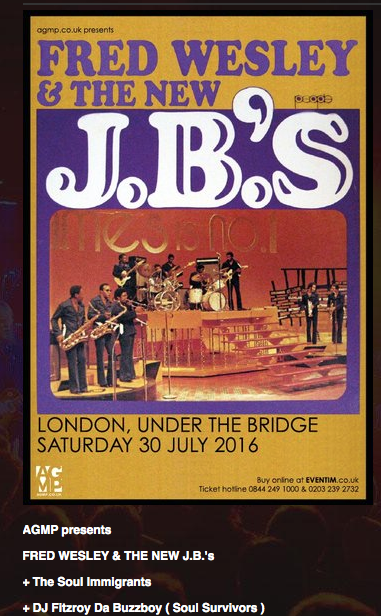 Greetings, I will be spinning ahead of one of the most important trombonist Fred Wesley who along side the late Wayne Henderson pioneered the funkier side of jazz with that big band sound with a touch of “Blessed Blackness’ Saturday 30th July 2016 is where the SW6 “House Party” will be at, so I advise you to get your tickets when Fred Wesley & The New JB’s will be “Breaking Bread” with a touch of “Rice & Ribs” and “More Peas”. Now you know “Funky Music Is My Style” and “I Wanna Get Down” with some “Doin’ It To Death” beats so make sure your there if you don’t want to be square!! Here is some of my interview with Fred in The Soul Survivors Magazine.
Greetings, I will be spinning ahead of one of the most important trombonist Fred Wesley who along side the late Wayne Henderson pioneered the funkier side of jazz with that big band sound with a touch of “Blessed Blackness’ Saturday 30th July 2016 is where the SW6 “House Party” will be at, so I advise you to get your tickets when Fred Wesley & The New JB’s will be “Breaking Bread” with a touch of “Rice & Ribs” and “More Peas”. Now you know “Funky Music Is My Style” and “I Wanna Get Down” with some “Doin’ It To Death” beats so make sure your there if you don’t want to be square!! Here is some of my interview with Fred in The Soul Survivors Magazine.
You obviously knew of James Brown’s repertoire as he was for at least ten years before already known as the hardest working man in show business.
Actually I never thought I would play with him as I wasn’t a fan of his music. We knew him as a showman and called him a screaming hollering sissy who wore a lot of make up dancing around the stage. Me and my piers we unimpressed with James Brown and thought he was a clown. Again it wasn’t a gig I really wanted as I’d have rather played with Horace Silver, Art Blakey or Cannonball Adderley. But it was a gig and I was married at the time with two daughters and still had aspirations to go to New York or LA and be discovered as a jazz trombonist, as by now my chops was good but I got stuck in James Browns band. Facebook event page

